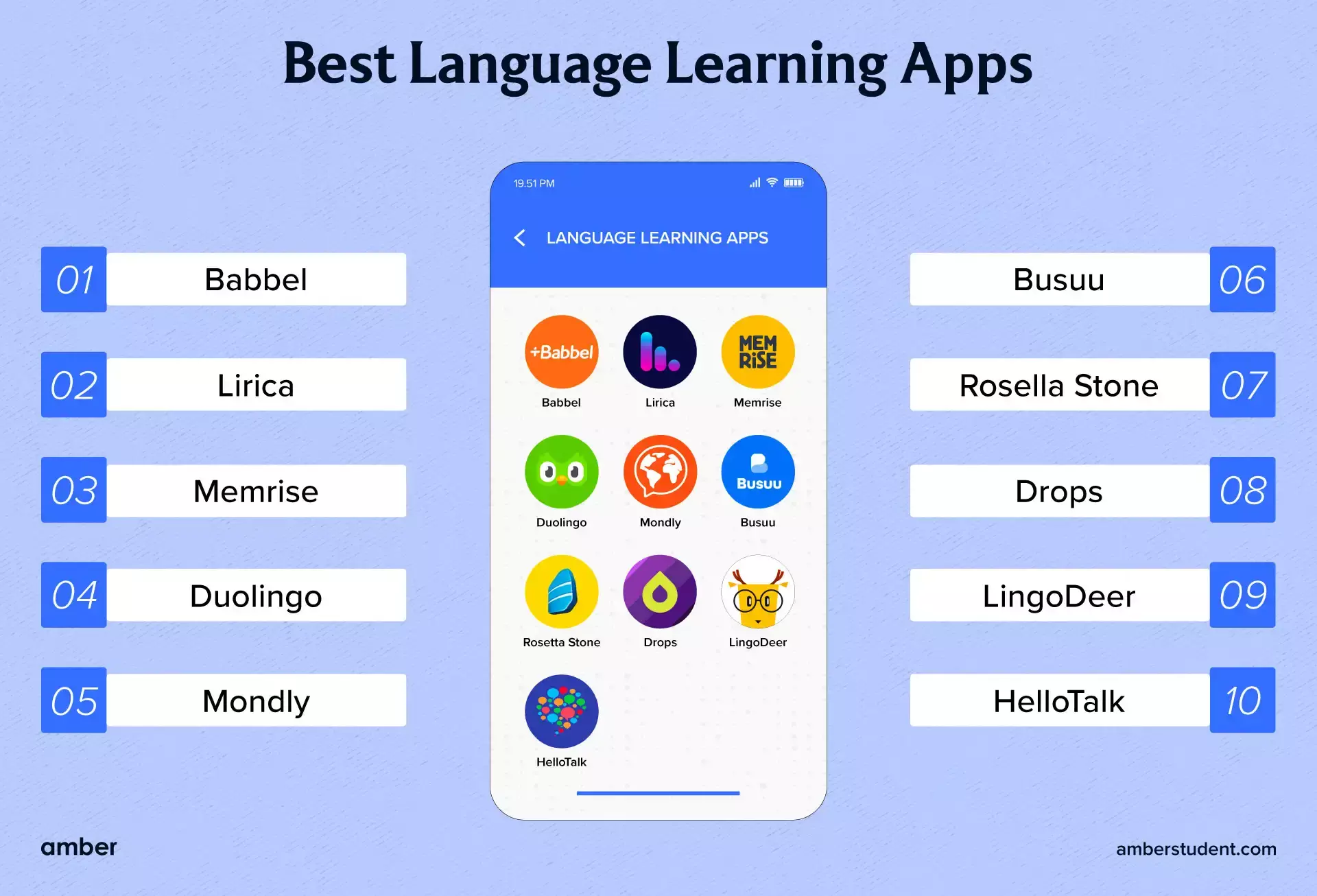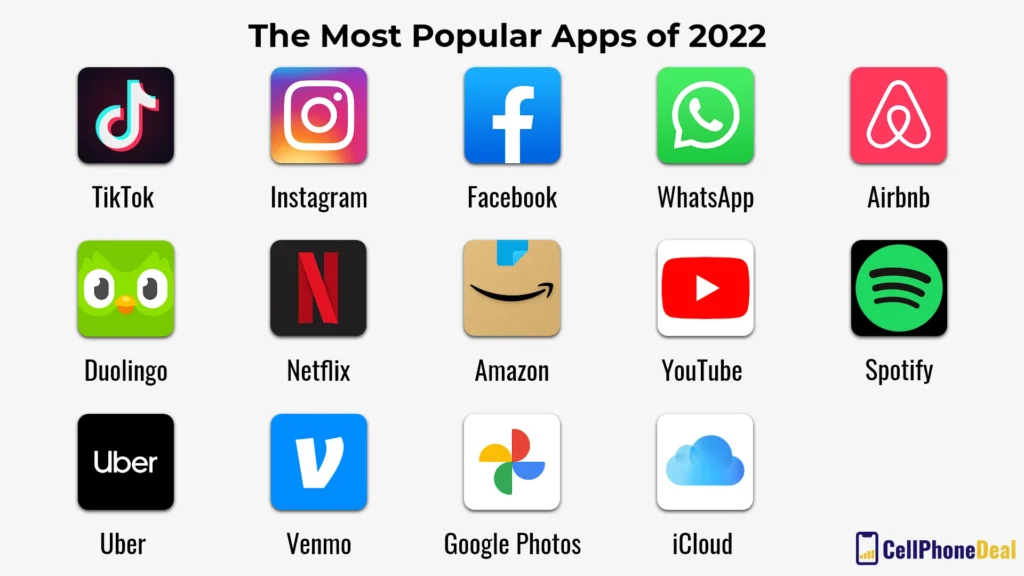In today’s globalized world, the ability to communicate in multiple languages is more valuable than ever. Language learning apps have emerged as a popular and effective solution for individuals seeking to enhance their linguistic skills. These innovative tools leverage technology to provide interactive and engaging experiences, making the process of learning a new language both enjoyable and efficient. From vocabulary building to grammar practice, language learning apps cater to various learning styles and preferences, ensuring that users can find the perfect fit for their educational journey.
In this article, we will explore the top language learning apps available today, highlighting their unique features and benefits. You will learn about the different methodologies employed by these apps, such as gamification, spaced repetition, and immersive learning techniques. Additionally, we will discuss how these tools can help you achieve your language goals, whether you’re a beginner or looking to refine your existing skills. By the end of this article, you will have a comprehensive understanding of how language learning apps can transform your approach to mastering a new language.
So, if you’re ready to embark on an exciting journey towards fluency, keep reading! Discover the best language learning apps that can fit seamlessly into your daily routine, making language acquisition not just a goal, but a rewarding experience. Whether you’re preparing for travel, enhancing your career prospects, or simply indulging in a personal passion, the right app can make all the difference. Let’s dive in and unlock the world of language learning together!
Language learning apps have revolutionized the way individuals acquire new languages. With the rise of technology, these applications provide users with flexible, engaging, and effective methods to learn languages at their own pace. This article explores various aspects of language learning apps, highlighting their benefits, features, and the best practices for effective language acquisition.
Benefits of Language Learning Apps
Language learning apps offer numerous advantages over traditional learning methods. One of the primary benefits is accessibility; users can learn anytime and anywhere, making it easier to fit language study into busy schedules. Additionally, these apps often incorporate gamification elements, which enhance motivation and engagement. Users can track their progress, earn rewards, and compete with friends, making the learning process enjoyable.
Moreover, language learning apps cater to various learning styles. Whether a user prefers visual aids, auditory lessons, or interactive exercises, there is likely an app that meets their needs. This personalized approach helps learners retain information more effectively, leading to better outcomes in language acquisition.
Popular Language Learning Apps
Several language learning apps have gained popularity due to their unique features and user-friendly interfaces. Duolingo, for instance, is known for its gamified approach, offering bite-sized lessons that make learning fun. Babbel, on the other hand, focuses on conversational skills, providing users with practical phrases and dialogues. Other notable apps include Rosetta Stone, Memrise, and Busuu, each offering distinct methodologies and resources for language learners.
When choosing a language learning app, it’s essential to consider personal goals and preferences. Some users may prioritize vocabulary building, while others might focus on grammar or pronunciation. Exploring different apps can help learners find the one that best suits their needs.
Features to Look for in Language Learning Apps
When selecting a language learning app, certain features can significantly enhance the learning experience. Look for apps that offer a variety of exercises, including listening, speaking, reading, and writing tasks. This comprehensive approach ensures that learners develop all aspects of language proficiency.
Additionally, consider apps that provide personalized learning paths. Adaptive learning technology can tailor lessons based on a user’s progress and performance, ensuring that they are challenged appropriately. Furthermore, offline access is a valuable feature for learners who may not always have internet connectivity.
The Role of Gamification in Language Learning
Gamification plays a crucial role in language learning apps by making the process more engaging and enjoyable. By incorporating game-like elements such as points, levels, and challenges, these apps motivate users to practice regularly. This approach not only enhances retention but also fosters a sense of achievement as learners progress through different stages.
Moreover, gamification encourages healthy competition among users. Many apps allow learners to connect with friends or join global leaderboards, creating a community of language enthusiasts. This social aspect can further boost motivation and commitment to language learning.
Language Learning Strategies Using Apps
To maximize the effectiveness of language learning apps, users should adopt specific strategies. Consistency is key; setting aside dedicated time each day for practice can lead to significant improvements over time. Additionally, integrating language learning into daily routines, such as labeling household items or practicing speaking with native speakers, can reinforce what is learned through the app.
Another effective strategy is to combine app usage with other resources. For instance, watching movies or listening to music in the target language can enhance comprehension and cultural understanding. This multi-faceted approach ensures a well-rounded language learning experience.
Challenges of Language Learning Apps
While language learning apps offer many benefits, they also present certain challenges. One common issue is the lack of speaking practice, as many apps focus primarily on reading and writing exercises. To address this, learners should seek opportunities to converse with native speakers, either through language exchange platforms or local meetups.
Additionally, some users may find it challenging to stay motivated over time. The novelty of an app can wear off, leading to decreased engagement. To combat this, setting specific goals and tracking progress can help maintain motivation and accountability.
Future Trends in Language Learning Apps
The future of language learning apps is promising, with advancements in technology paving the way for more immersive experiences. Features such as augmented reality (AR) and virtual reality (VR) are expected to enhance language learning by providing realistic environments for practice. These technologies can simulate real-life conversations and cultural interactions, making learning more effective.
Additionally, artificial intelligence (AI) is likely to play a significant role in personalizing learning experiences. AI-driven apps can analyze user performance and adapt lessons accordingly, ensuring that learners receive tailored content that meets their individual needs.
Conclusion: Choosing the Right Language Learning App
In conclusion, language learning apps offer a flexible and engaging way to acquire new languages. With numerous options available, it’s essential for learners to consider their goals, preferences, and learning styles when selecting an app. By leveraging the benefits of these applications and adopting effective strategies, users can enhance their language learning journey and achieve fluency in their target language.
Ultimately, the key to success lies in consistency, motivation, and a willingness to explore various resources. As technology continues to evolve, language learning apps will undoubtedly play an increasingly vital role in helping individuals connect across cultures and languages.
| App Name | Description | Features | Target Audience | Platforms |
|---|---|---|---|---|
| Duolingo | A gamified language learning platform that offers courses in multiple languages. | Interactive exercises, progress tracking, and a community forum. | Beginners to intermediate learners. | iOS, Android, Web. |
| Babbel | A subscription-based app focusing on conversation skills and real-life dialogues. | Speech recognition, personalized review sessions, and cultural insights. | Adults and serious learners. | iOS, Android, Web. |
| Rosetta Stone | A well-established language learning software that emphasizes immersion. | Live tutoring, speech recognition, and a mobile app. | All levels, especially beginners. | iOS, Android, Web. |
| Busuu | A social network for language learners that offers interactive courses. | Grammar exercises, vocabulary practice, and peer feedback. | Beginners to advanced learners. | iOS, Android, Web. |
| Tandem | A language exchange app that connects users with native speakers. | Text, voice, and video chat options for real-time practice. | All levels, especially those looking for conversational practice. | iOS, Android. |



